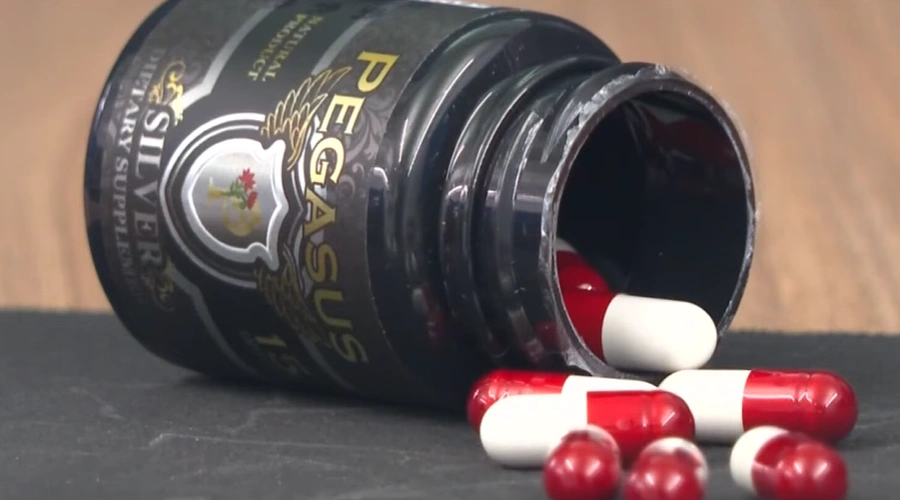The Detection Window for Tianeptine and How to Get Treatment
One of the latest trends in gas station drugs, tianeptine (also known as ZaZa or Neptune’s Fix) is attracting significant attention because of its withdrawal symptoms and adverse effects.
Opioid-like effects have raised eyebrows in the medical and recovery industries when it comes to Tianeptine dependence. Becoming dependent on any substance generally leads to daily consumption.
When this becomes a struggle, facing a positive sample on standard drug tests or any drug testing protocols can become concerning.
If you or a loved one is using Zaza and facing testing of this kind, a pivotal question becomes: does Tianeptine show up on a drug test?
Our blog resource from Ingrained Recovery answers this question, and provides examples of the detection window and potential withdrawal symptoms, as well as proven treatment options.
Get Effective Detox and Rehab Options
Find Help At Ingrained Recovery
Does Tianeptine Show Up On Standard Drug Tests?
For most routine drug testing, Tianeptine will not show up as a positive result. Standard testing protocols, including five and ten-panel drug screens, generally focus on common illicit drugs like opioids, amphetamines, benzos, cocaine, and marijuana. Tianeptine falls outside of these categories as an atypical antidepressant.
However, specialized testing methods can detect Tianeptine and its metabolites. This specialized form of drug testing is more expensive and far less common, but is employed in specific scenarios like medical investigations or cases of suspected misuse. In addition, Tianeptine misuse could warrant drug testing if it leads to behavior that’s characteristic of opioid toxicity or an overdose.
Employers or medical professionals testing for Tianeptine would need to specifically request drug testing kits that include identification of Tianeptine use.
The Detection Window for Tianeptine Use

Understanding the detection window of Tianeptine use is critical for medical and legal reasons. Because it’s considered a controlled substance in certain countries, failing a drug test for Tianeptine use could lead to criminal charges. Listed below is the pertinent information regarding drug testing timelines for Tianeptine use:
Half-Life
Tianeptine has a short half-life compared to other substances, averaging 2.5 to 4.5 hours in individuals with a healthy metabolism. This means that the entire drug is expelled from the body within one day. However, this figure varies depending on the dosage amount, metabolic rate, and overall health.
Metabolism
Long-term exposure to Tianeptine makes it nearly as dangerous as an opioid. These dangers are further exacerbated by the fact that Tianeptine is metabolized in the liver, leaving it susceptible to potential long-term health implications.
Chronic Use
For those who engage in Tianeptine use frequently or in high doses, the detection window may increase because of the accumulation of the drug in the body.
As a general rule, Tianeptine is unlikely to remain detectable beyond two days unless chronic use has occurred. Because of the abuse potential, understanding the signs of Tianeptine misuse is critical to avoid fatal intoxication or other serious harm.
Get Accredited Treatment at Ingrained
Find Help At Ingrained Recovery
What Is the Nature of Tianeptine as a Prescription Drug?
Tianeptine is a tricyclic antidepressant that was first synthesized in the 1960s. Unlike most traditional antidepressants, Tianeptine works by modulating glutamate activity in the brain and enhancing neuroplasticity, both of which lead to the formation of enhanced neural connections and new growth.
In some countries, Tianeptine is prescribed to treat major depressive disorder. When used correctly, users report a stabilization of mood swings and an enhancement of cognitive function.
However, Tianeptine’s effects have led to certain health risks that are raising concern in several locations, especially in the United States.
The Misuse and Abuse of Tianeptine is on the Rise in America
Because there is a clear risk of abuse, Tianeptine, while legal in some countries, is not medically cleared for use in the United States.
An increase in abuse of the drug is causing growing concern in the United States and other countries.
Large doses lead to the activation of opioid receptors in the brain. When activated, these receptors cause users to experience euphoria and sedation effects.
The Risks and Realities of Tianeptine Dependence
Because of the similarities to opioids like heroin and oxycodone, as well as Roxicodone (commonly called Roxies) this prescription drug has become well known among recreational substance abusers. Across the country, users are reporting physical dependence similar to most opioids.
Even more concerning is the pain and discomfort during the detox period. Because of the activation of opioid receptors, long-term users experience withdrawal stages that include pain and discomfort.
Many countries, including the United States, have rejected Tianeptine as a regulated prescription medication. Instead, this antidepressant is marketed similarly to dietary supplements and given a more appealing name.
You may have already encountered Tianeptine, but were unaware due to misleading rebranding campaigns.
Names like “ZaZa Red” and “Tianna Red” make Tianeptine more appealing to potential users, and a lack of regulation is contributing to misuse and severe side effects.
The Most Common Signs of Tianeptine Misuse

Tianeptine products labeled as dietary supplements carry a significant risk, especially when potential users are misled into believing they’re not consuming an addictive antidepressant.
When taken in large doses or combined with other drugs, the danger of Tianeptine abuse is enhanced. However, there are signs of abuse to be watchful of if you suspect a loved one is abusing Tianeptine. These include:
Physical Symptoms
- Nausea
- Drowsiness
- Rapid heartbeat
- Respiratory depression
Psychological Symptoms
- Mood swings
- Anxiety
- Hard crash
Long-Term Dependency
Although testing positive on certain drug testing protocols may be a concern, specific health risks associated with Tianeptine lead to even more concern. A risk of long-term dependency is present in those who abuse this medication, with extended periods displaying signs of opioid use disorder. Medical professionals familiar with Tianeptine report that long-term effects included an increase in tolerance and painful withdrawal symptoms.
During the withdrawal period, users may experience muscle pain, irritability, and intense cravings. These are all side effects that are indicative of opioid withdrawal, leaving many users concerned or confused when long-term use ceases.
Significant health risks are associated with Tianeptine dependence. Those who abuse this antidepressant are at high risk of liver damage, reduction of cognitive function, and even the risk of overdose.
What are Effective Treatment Options for Tianeptine Abuse?

If you or someone you know is struggling with Tianeptine misuse, seeking professional help to avoid serious health risks is imperative.
At Ingrained Recovery, we offer programs that offer customized care solely for the abuse of Tianeptine. Our facility includes the following options:
Detoxification
Medical detox programs help safely manage dangerous withdrawal symptoms under professional supervision. This allows users to avoid serious health risks associated with abstaining from Tianeptine abuse.
During medical detox, our clients receive medications that help reduce the discomfort and pain of withdrawal. Because opioid receptors are activated during use, protocols for medically supervised detox are similar to those of opioid use disorder cases.
Inpatient Rehabilitation
Specialized inpatient programs offer a structured environment where users can address the underlying cause of misuse and learn coping strategies. Because of fatalities involving Tianeptine, inpatient rehab is strongly recommended.
Our inpatient program fosters a caring, compassionate environment that provides clients with awareness and education regarding substance abuse. One-on-one counseling sessions provide specific therapy needed based on personalized treatment plans, while group meetings lead to increased accountability and a growing support system.
Outpatient Programs
If you’re unable to commit to inpatient care at Ingrained Recovery, you might find that alternative outpatient programs offer a more flexible schedule. It’s essential to do your research and ensure that you still receive the therapy and support needed to overcome Tianeptine addiction.
It’s worth noting that we strongly recommend a Tianeptine detox program with a transition into inpatient support because of the similarities to opioid addiction. These treatment options provide the structure and supervision needed to move forward and experience long-term recovery.
Aftercare and Support Groups

Aftercare is a cornerstone of any rehab program. During the first several weeks and months after exiting treatment, our clients must continue to approach recovery proactively.
Peer support groups like Narcotics Anonymous (NA) deliver valuable insight and foster accountability for your addiction recovery needs.
Engaging with those who struggle with similar issues fosters bonds and creates a level of accountability that allows you to depend on your peers for much-needed ongoing support.
Up To 100% of Rehab Covered By Insurance
Find Help At Ingrained Recovery
Find Relief from Tianeptine Dependence at Ingrained Recovery
While Tianeptine is not commonly detected in routine drug tests, special screenings can identify its presence if abuse is suspected.
Understanding the detection window and the dangers associated with the abuse of this antidepressant is crucial for users and concerned loved ones as well.
If you or someone you care about is struggling with tianeptine, please contact a member of our admissions team today to find out more about treatment options or to ask questions about insurance.

